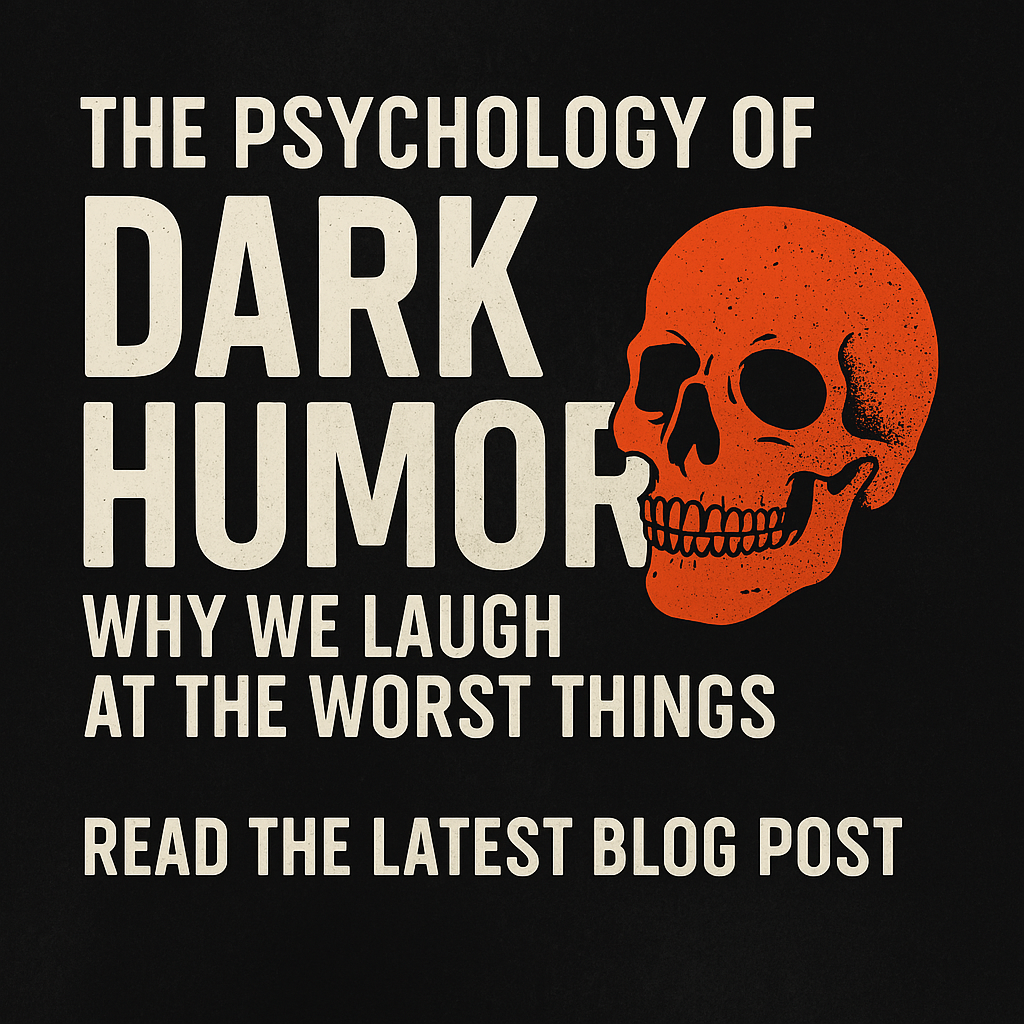What Is Dark Humor (and Why Do We Love It So Much)?
Dark humor is comedy’s twisted cousin—the kind of joke that makes you laugh and question whether you’re going to hell immediately afterward. It’s irreverent, uncomfortable, and incredibly human.
Whether it’s a joke about death, disaster, or dystopia, dark humor thrives in the places we’re told to avoid. But here’s the kicker: those jokes help us cope. They let us touch the untouchable. And they make life’s worst moments just a little less terrifying.
How the Brain Reacts to Dark Humor
Psychologically, laughing at dark humor is like emotional CrossFit. It requires your brain to do a weird little dance:
- Comprehend the joke
- Acknowledge the taboo or discomfort
- Emotionally detach just enough to find the absurdity
Studies (like the 2017 study published in Cognitive Processing) show that people who enjoy dark humor often score higher on intelligence and have lower aggression levels. Translation: you’re not broken—you’re just wired for weird.
So no, you’re not a sociopath because you laughed at that grim joke—you’re probably just emotionally evolved. Welcome to the club.
Why Do We Laugh at the Unthinkable?
Humor, especially the dark kind, is a coping mechanism. It’s how we deal with tragedy, fear, and the overwhelming nonsense of the modern world.
Think about:
- Funeral home directors who crack jokes behind closed doors
- ER nurses sharing gallows humor after brutal shifts
- Soldiers laughing during war
These aren’t sociopathic behaviors—they’re psychological survival tactics.
Laughter gives us control, even if just for a moment. It turns the chaos into something we can handle, point at, and say, “Okay, that’s messed up… but at least we can laugh.”
The Line Between Satire and Insensitivity
Here’s the deal: not all offensive jokes are dark humor, and not all dark humor is cruel.
- Dark humor punches up—exposing hypocrisy, calling out power, mocking absurd systems.
- Insensitive humor punches down—targeting the vulnerable, reinforcing stereotypes, going for shock instead of substance.
At Cult of Odd, we believe satire should always aim to challenge—not cheapen. Our motto? Mock the machine, not the mechanic trying to survive it.
Is Dark Humor Healthy?
Yes. Like, actually yes. According to psychologists, people who engage with dark humor:
- Develop emotional resilience
- Process trauma more effectively
- Have higher levels of empathy (surprising, right?)
Dark humor lets us talk about things we’re not supposed to—death, corruption, suffering, injustice—without falling apart. It’s a pressure valve in a collapsing circus.
So if you’ve ever made a bleak joke and been met with side-eye and silence, just remember: you’re not heartless—you’re processing.
Cult of Odd: Built on Dark Laughter and Dangerous Ideas
At Cult of Odd, we dive into the uncomfortable, the absurd, and the culturally radioactive—armed with sarcasm, history, satire, and a deep love for the human mess.
🎧 Listen if:
- You find today’s headlines funnier than the Onion
- You process existential dread through laughter
- You want truth, but only if it’s wrapped in profanity and fake ads
Check out our latest episode: Episode 119
Final Thought: If the World’s on Fire, Might as Well Roast Marshmallows
Dark humor isn’t about laughing at pain—it’s about reclaiming control over it. It’s how we turn despair into defiance. It’s how we stay human in a world that’s constantly trying to make us numb.
So go ahead. Laugh at the apocalypse. Giggle through the tears. And the next time someone says, “That’s not funny,” tell them:
“Maybe not to you. But it’s saving someone else’s sanity.”


